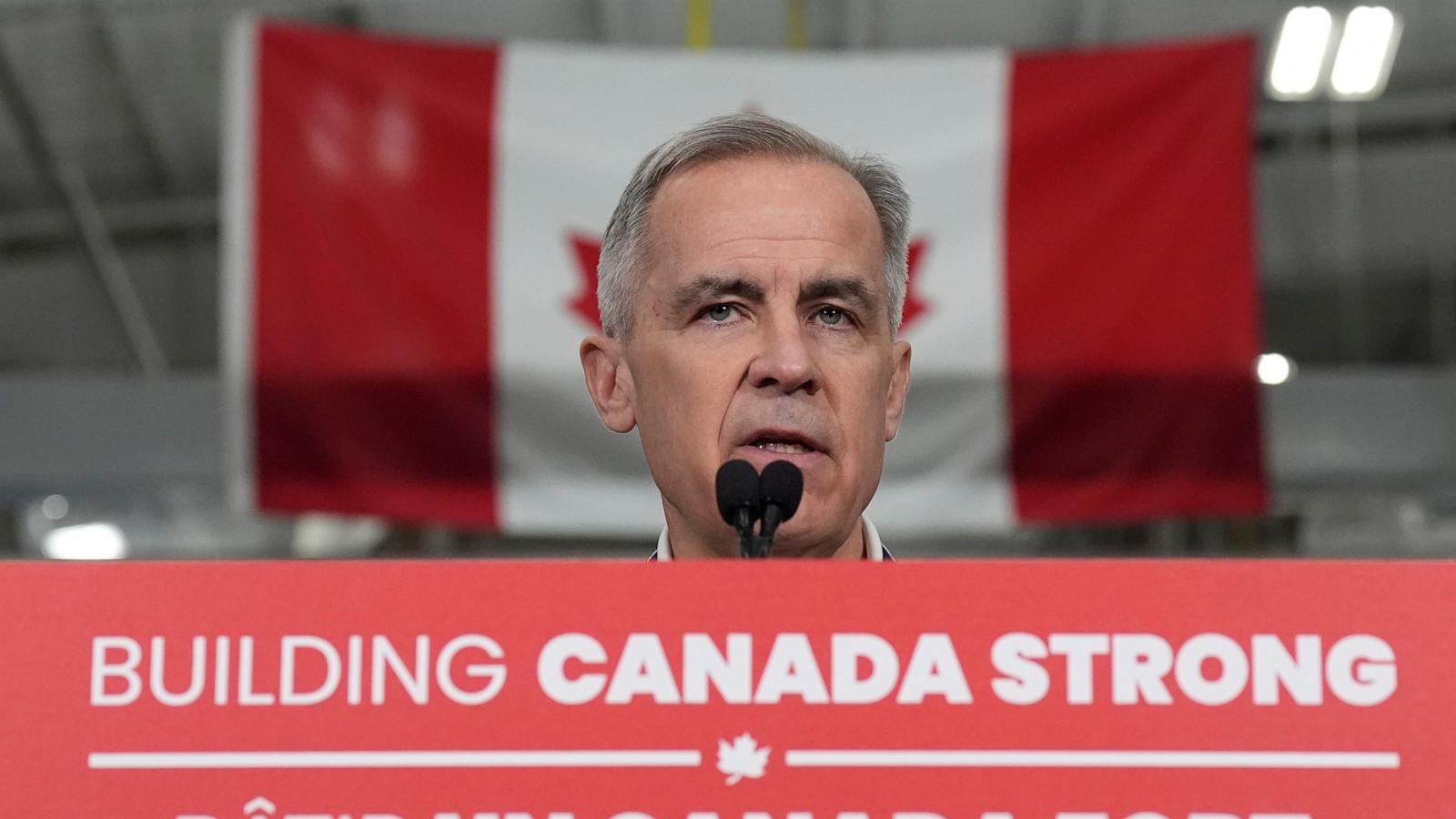Canada vowed to respond with retaliatory tariffs if President Donald Trump slaps additional levies on Canadian goods as part of an expected announcement of sweeping new tariffs on Wednesday.
“We will respond to additional measures,” Canadian Prime Minister Mark Carney told reporters on Tuesday. “We will put in place retaliatory measures if there are additional measures put against Canada tomorrow.”
Speaking to reporters minutes later, White House press secretary Karoline Leavitt reiterated Trump’s plan to announce wide-ranging new tariffs on April 2, which Trump has dubbed “liberation day.”
“Our country has been one of the most open economies in the world and we have the best consumer base,” Leavitt said. “But too many foreign countries have their markets closed to our exports.”
The Trump administration is weighing policy options ahead of the announcement, sources told ABC News. One proposal would impose a 20% flat tariff rate on all imports, while another would put in place different tariff levels for each country to match the barriers they impose on U.S. products, the sources said.
Administration officials have also publicly spoken about focusing on imposing tariffs on about 15% of countries with the largest trade imbalances with the U.S.
The final details still aren’t set in stone, the sources said. Leavitt told reporters Tuesday afternoon Trump was perfecting the policy to “make sure this is a perfect deal for the American people and the American worker.”
When asked whether Trump would be open to negotiations with target countries about the tariffs, Leavitt said, “The president is always open to taking calls.”

While Canada readies potential tit-for-tat levies, the U.S. Senate is expected to vote Wednesday on a bill that could undo the emergency declaration Trump declared as a basis for tariffs on Canada.
The bill put forward by Sen. Tim Kaine, D-Va., could effectively reverse Trump’s tariffs on Canada. If Kaine’s measure passes the Senate, it would then need to receive a majority vote in the Republican-controlled U.S. House.
Trump sharply criticized the measure on Tuesday, urging Senators to vote against it.
“We are making progress to end this terrible Fentanyl Crisis, but Republicans in the Senate MUST vote to keep the National Emergency in place,” Trump said in a post on Truth Social.
Since September, nearly all fentanyl seized by the U.S. came through the Southern border with Mexico, according to U.S. Customs and Border Patrol, or CBP. Less than 1% of fentanyl was seized at the Northern border with Canada, CBP found.
The Trump administration last month imposed 25% tariffs on some goods from Canada. Initially, the tariffs applied to all Canadian goods, but a day later Trump issued a carve-out for goods compliant with the United States-Mexico-Canada Agreement, or USMCA, a free trade agreement.
In response to U.S. tariffs, Canada slapped a 25% retaliatory duty on $30 billion worth of goods and pledged additional measures.
Despite the trade turbulence, the S&P 500 and Nasdaq closed higher on Tuesday.
The S&P 500 climbed 0.3%, while the Nasdaq jumped 0.8%.
The Dow Jones Industrial Average barely budged. The index ticked down 11 points, or 0.03%.
Trump told reporters at the Oval Office on Monday that he had settled on a course of action for the fresh round of tariffs set to take effect on April 2, though he declined to offer details.
Additional U.S. tariffs could elicit countermeasures from trade partners, exacerbating global trade tensions that erupted in response to a previous set of tariffs issued by the Trump administration last month.
Europe has a “strong plan” to retaliate against Trump’s planned tariffs, Ursula von der Leyen, president of the European Commission, said in a speech on Tuesday.

“We will approach these negotiations from a position of strength. Europe holds a lot of cards, from trade to technology to the size of our market,” von der Leyen said.
Days earlier, Trump told reporters over the weekend that his tariffs could affect “all the countries.”
“The tariffs will be far more generous than those countries were to us, meaning they will be kinder than those countries were to the United States of America,” he said.
ABC News’ Selina Wang contributed to this report.
ABC News: Top Stories
Read the full article .


